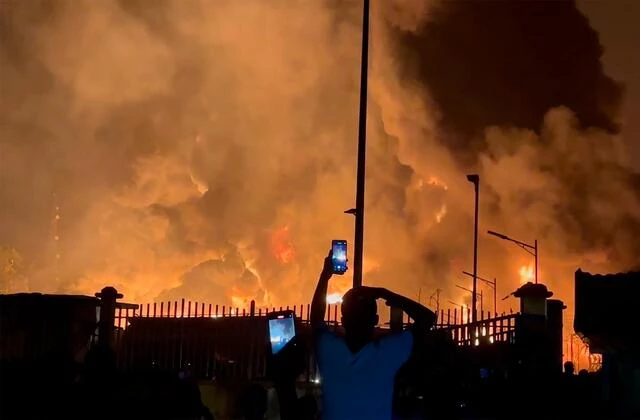Guinea's foreign minister has told foreign diplomats that curbs on internet access in the West African country were needed because of a "security problem", in remarks broadcast by state TV.
Around 15 ambassadors or representatives including from the European Union, the United States and China met Morissanda Kouyate to voice concerns, according to the late Wednesday broadcast.
They raised restrictions on freedom of expression and internet access, a fuel shortage following a devastating fire at the main depot in December and obstacles facing their teams.
For several weeks, access to the internet has been severely limited in Guinea, which has been ruled by military leaders who came to power in a 2021 coup.
Authorities have also imposed restrictions on non-official media, with social networks and private radio stations cut off, news websites interrupted or suspended and journalists assaulted or arrested.
"We are all affected, we are affected by a security problem," Kouyate said in the comments broadcast on TV.
He gave no details on the nature of the problem. "We can't go any further," he said.
The foreign minister also told the diplomats that the difficulties facing their embassies were also encountered in Guinea's ministerial departments.
"As for connection problems, there are the same problems at the presidency," he said, adding they would resolve the issue as soon as possible.
The United Nations voiced concern at the end of last month about "increased repression of media freedom" in Guinea and urged the authorities to change course immediately.
The government on Wednesday also announced the gradual resumption of normal diesel supplies due to the arrival of a fuel tanker at the port in the capital, Conakry.
It took nine days for a blaze to be fully extinguished after a blast rocked the state oil company's main depot on December 18 in Conakry, where 24 people died and another 454 were injured.
Colonel Mamady Doumbouya, the head of the ruling junta, has promised to hand the reins of government back to elected civilians by January 2026.


